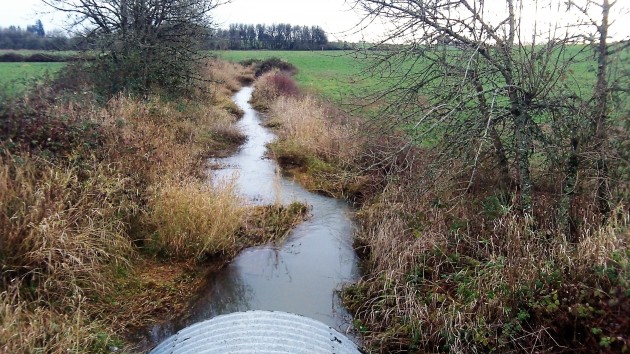Now that it’s raining again is a good time to think about — what else? — wetlands, and how Oregon’s approach to their preservation is interfering with our efforts to save farmland and forests.
Every once in a while this comes up at meetings of the Albany City Council, as it did again last week. Councilor Rich Kellum brought it up. He is concerned that the existence of wetlands makes it too expensive to develop industrial sites in town. (Even Albany’s planned new police station, though not an industrial project, costs more than necessary because much of the site is a designated wetland.) So Kellum wants to know whether it would make sense to expand the city limits or even the urban growth boundary to make sure there’s enough land for industry and other forms of economic development.
Councilman Floyd Collins has often made a related point. Senate Bill 100, the foundation of Oregon land use law, Collins has pointed out, sought to concentrate land development inside cities in order to protect farmland, forests and general open space outside the city limits. Long after that foundation was laid in 1973, the state and federal governments realized that wetlands are worth protecting, which they are.
Trouble came when the definition became so stretched that almost everything is a wetland. Now you can’t build anything in cities, even in the middle of Albany, without running into wetlands regulation and added expense. An apartment project at 34th and Hill found that out a year ago when it had to shut down for several weeks after someone discovered a wetland on the lot.
Under Oregon law cities are supposed to maintain an inventory of buildable land to accommodate growth. Declaring wetlands where there aren’t any — where none of the functions such as flood control or habitat for plants and wildlife are present even though there’s hydric soil — makes this hard or impossible. Hence the drive by cities to expand their boundaries, consuming farmland and open space, which is what SB 100 tried to prevent.
The answer is to amend the law. Let’s change it to make sure to protect real wetlands so they can continue to serve their important functions. But let’s exempt land within cities from these regulations, especially when the surrounding acreage has already been built up and become urban. I can’t see our Oregon legislature, as now constituted, making such a sensible change. But maybe one of our valley legislators would be willing at least to give it a shot. (hh)



“Trouble came when the definition became so stretched that almost everything is a wetland.”
Classic overreach. It’s a hallmark of government at every level. Consider “blight.” Locally, this term has been applied so broadly that it has no meaning.
Is there anything government touches that is constrained by a limiting principle? I can’t think of any.
Yeah, sure Gordon.You can’t think of ANYTHING. Try these on for size:
The Constitution of the United States
The Constitution of the State of Oregon
The Charter of the City of Albany
The fact that you can’t think of anything Gordon, is that you act much like an self centered adolescent who can’t understand a world that does not acquiesce to what they want. That’s not what an adult does living in society with other adults.
“We the People of the United States, in Order to form a more perfect Union, establish Justice, insure domestic Tranquility, provide for the common defense, promote the general Welfare, and secure the Blessings of Liberty to ourselves and our Posterity, do ordain and establish this Constitution for the United States of America.”
When the people feel that the Constitution is not appropriately serving our interests, we change it. It has been amended 26 times. All that takes is a 3/4 majority of the states, governed by the people of those state.
If need be, we can further explain how the state Constitution must conform to the precepts of the federal Constitution, but still allows the states to adopt their own regulations to deal with issues as they see fit.
Unfortunately, explaining that does no good because the only thing that satisfies Gordon, are the pronouncements of Gordon.
The whole wetlands thing is a farce. A portion of our property has been designated wetlands by the city. We investigated the cost of partitioning and selling about 1/2 acre so a house could be built – would have had to put in a street and all the utilities, mediate the wetlands, hauled in fill – cost, at the time estimated at $150,000 and we would have had a lot that would have sold for $75,000. Adjacent to this are several houses that sit higher than our property because the developer hauled in fill.
Money talks when it comes to wetlands, just like anything else,
I do not read past Bob Woods name on replies! Call me narrow minded but I will not read the rants!